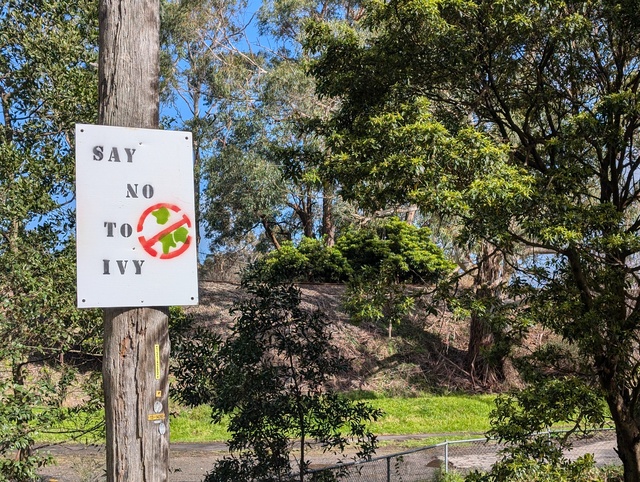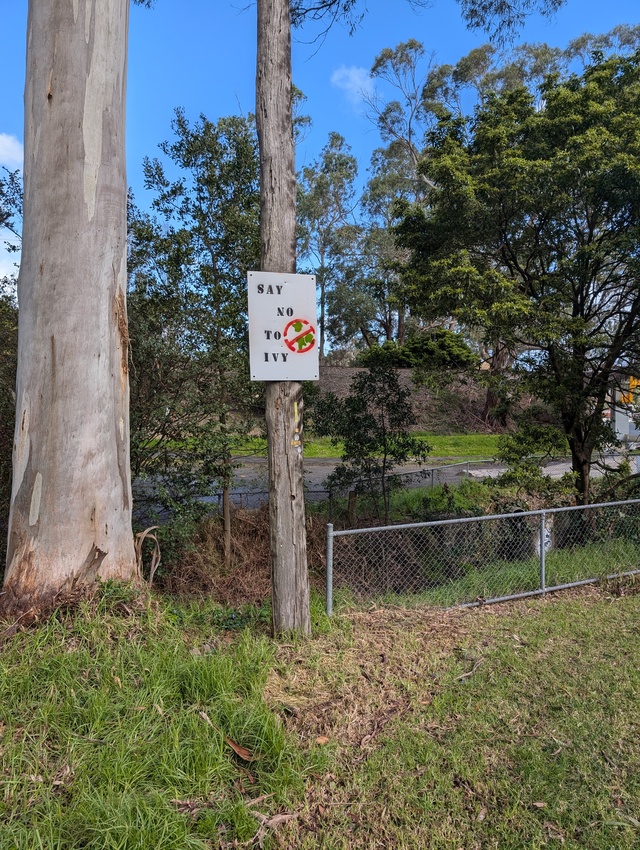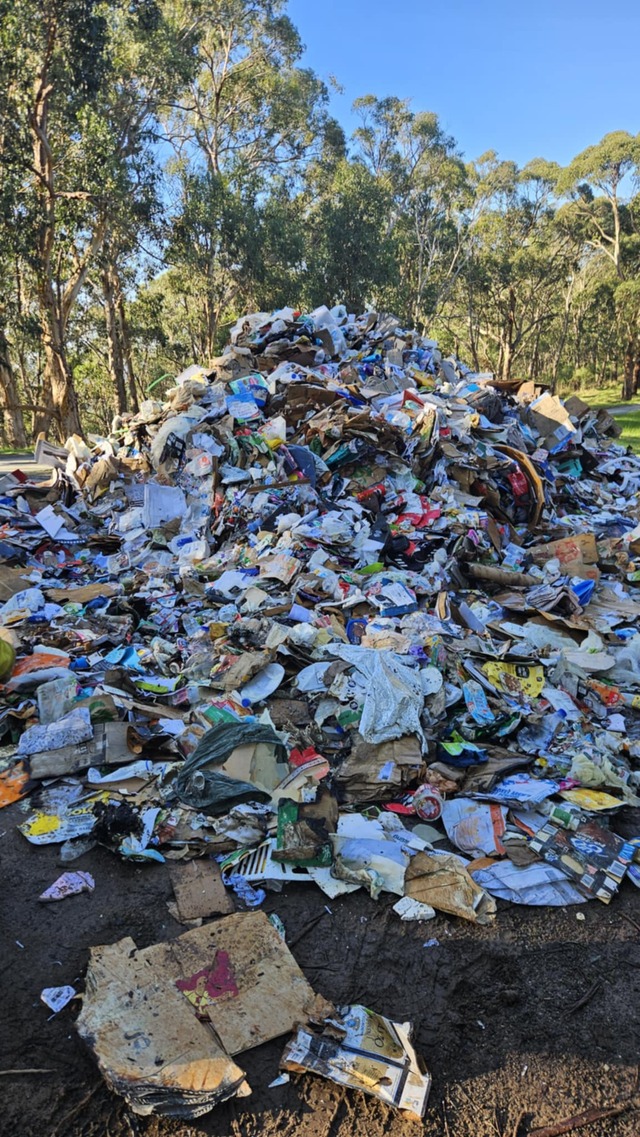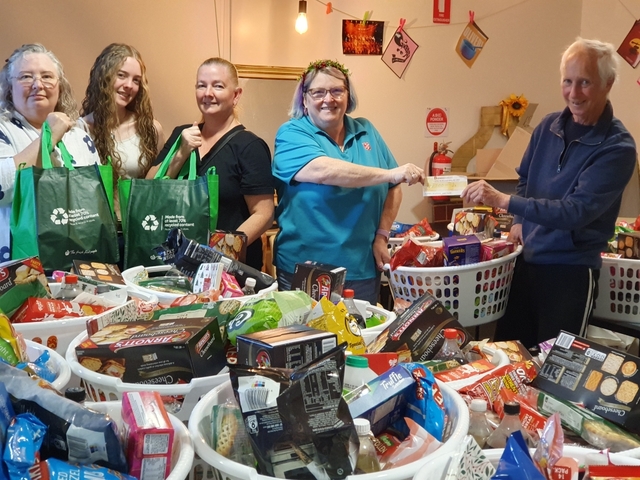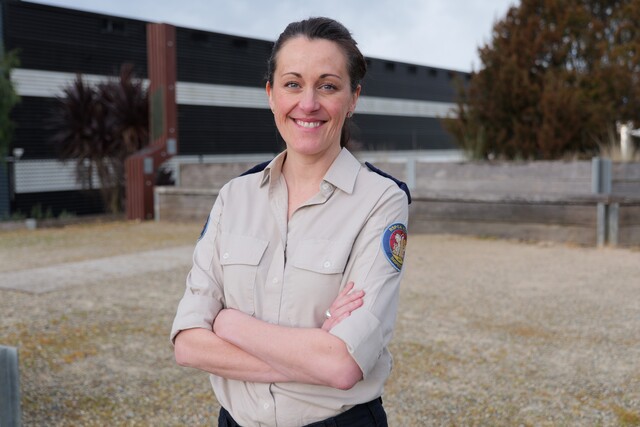An active environmentalist has been spotted in the foothills of the Dandenong Ranges in recent weeks, declaring open war on the notorious English ivy weed.
Signs declaring “Say no to ivy” can be spotted throughout the Knox region as member of Greening Knox Darren Wallace pursues his mission to reduce the spread of environmental weeds in the area.
“After several wet summers the spread of ivy has reached a critical level,” he said.
“There’s been seedlings coming up everywhere throughout the municipality.”
“I reached a point where I was kind of sick of the authorities, Vic Roads, the Knox city council and some of the other authorities doing nothing about this large amount of ivy up trees.”
English ivy is listed as a ‘notable weed’ and as stated in the Knox council’s biodiversity plan the Knox municipality holds a significant role in metropolitan Melbourne’s biodiversity, providing key habitat connectivity between the eastern suburbs of Melbourne and the Dandenong Ranges.
Mr Wallace has had support from the community with people approaching him to congratulate and support his work.
“A number of people say to me, how did I get involved in this campaign and I’ve had many people say great work,” he said.
“I think there’s an increasing awareness of the threat of ivy spreading throughout the municipality and the risk it poses to native vegetation – in particular, the risk it poses to canopy trees.”
“Trees have got enough challenges in their lives currently to deal with and having hundreds of kilos of ivy hanging off them, adding significant weight to them – we’ve just got to do something about it.”
President of Knox Environment Society Richard Faragher said that there are currently a number of threats to Knox’s biodiversity and invasive weeds are one of the biggest.
“It is great when a community member takes on a common enemy and Darren is rightly concerned about it. Once it heads for the tree canopy it places stress on the trees’ health and once they climb they fruit – which is then eaten by birds and spread,” he said.
“We applaud Darren’s efforts in his campaign to target a big problem in Knox. However, we would also like to recognise that there are many individuals and groups in Knox working hard on controlling local weed species and have been over many years.”
Mr Faragher said that the removal of the ivy from the tree canopy will slow the spread of the weed, but there needs to be a more complete approach as if the ivy dies and the gap in the habitat is simply replaced by another form of weed the advantage is reduced.
“Any ivy removal should be followed up by cleaning up, mulching and planting,” he said.
Mr Wallace thinks a multifaceted approach involving awareness in the community and more resources from the Knox council could help.
“This is a difficult issue – I’ve been advocating to council that they need to allocate some resources to have a weed control officer, that person could do some of the weed work, but they could also coordinate a program of education and coordinate funding applications for additional resources from the state government to deal with ivy and all the other environmental weeds that are basically bombarding the municipality,” he said.
“An authorised council officer that could go around and talk to and educate residents and it’s also much, much better to have council officers dealing with state government authorities,” he said.
Mr Wallace recently came forward at a Knox council meeting on 22 July to highlight the spread of weeds in the region.
“I’m very concerned by English ivy particularly when it’s of this magnitude. And I’m hoping council might be similarly concerned,” he said at the meeting.
Knox city council Director of Infrastructure Grant Thorne said that the council is concerned about the spread of noxious environmental weeds throughout the municipality including in their sites of biological significance.
“The biodiversity team diligently manage the biodiversity sites by employing a number of measures to control the weeds from mechanical to chemical and also the use of goats in some sites,” he said.
“Beyond the sites of biological significance council actively collaborates with the community, friends of groups and other authorities such as Melbourne Water and Parks Victoria to manage weed infestations.’
“Knox has successfully in the past, successfully secured an annual grant through the period and a weed management partnership to assist in weed control throughout the municipality.“
Mr Faragher said it would be great if Knox would consider a weed control officer as there are many weeds in many sites and a coordinated effort would be the best method.
“As always it will be a question of funding,” he said.
At the meeting, Mr Wallace said that he was quite serious when he suggested that it’s lazy not to act on environmental weeds and not to act is also very, very bad economics.
“As environmental weeds spread and grow at a far greater rate than any cost escalation factor or CPI.”
‘So therefore I call upon council to act on the position of an environmental weed officer, which I am very, very sure would be cost-neutral for the council because of the exponential spread of weeds in this municipality. Thank you,” he said.
Mr Thorne said that he appreciates Mr Wallace’s ongoing interest in engagement on the crucial issue of the environmental weeds.
“We are internally exploring the possibility of reallocating existing resources to partially address the issue of weeds, this is not a commitment to provide the resources. It remains as an option under consideration or still under consideration. Council operates within a constrained budget environment and must carefully consider the allocation of resources across all services, It provides to the community – we strive to maintain a thoughtful and balanced approach, recognising the need to address the various competing demands on council services.”
Invasive weeds in Victoria have been in the spotlight with an ABC story run recently on chain stores selling the very plants causing the issues.
“The selling of weeds by large chain stores is not uncommon and really requires the Government and the nursery industry to do better by our community and the environment. Ivy, bamboo, agapanthus, broome (of various types) are often on sale,” said Mr Faragher.
On 21 June the Federal Minister for the Environment and Water, Tanya Plibersek chaired a meeting of Australia’s Environment Ministers in Sydney and ministers agreed to ‘ambitious national targets for Australia’s environment.’
Ministers agreed to national targets that will protect and conserve 30 per cent of Australia’s landmass by 2030 and among many other things to crack down on feral goats and escaped garden plants as a priority.
“We’re taking action on feral species,” said Minister Plibersek.
“It’s good that they’re saying that it’s good that they’re aware of it – but talk is cheap. The only thing that would give me any comfort is action, sometimes actions are few and far between,” said Mr Wallace.
Going forward Mr Wallace wants to continue his work, talking to council members and staying active in weed removal in the Knox area.
“It would also be good to put together a formal community-based group that goes around and deals with it,” he said.

